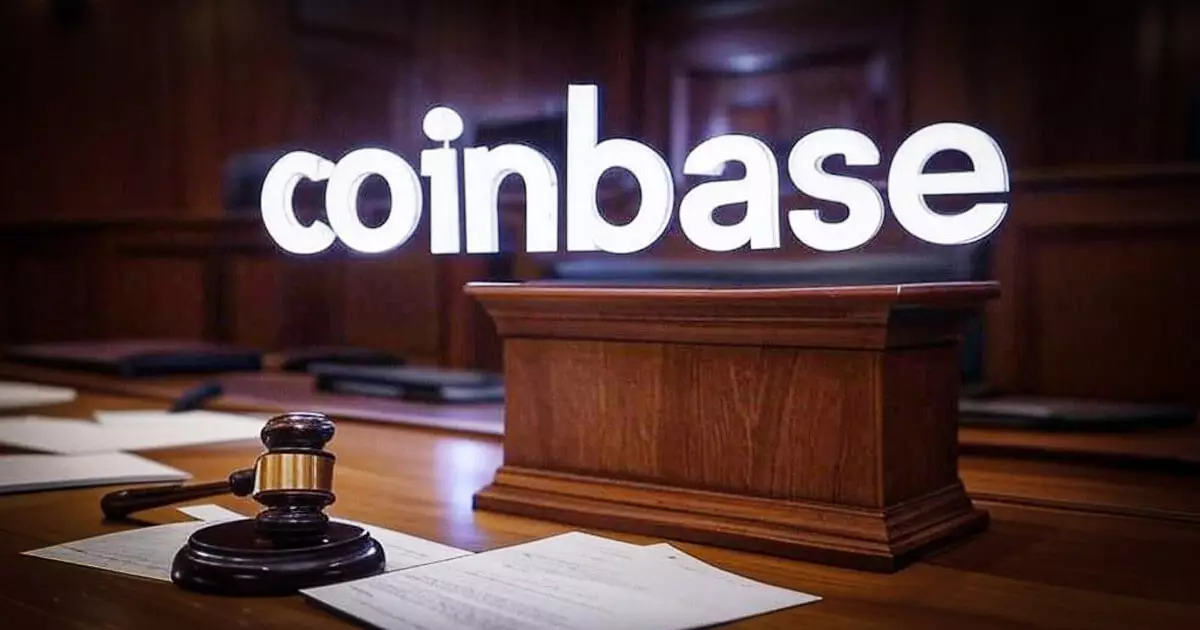In a pivotal decision, the Third Circuit Court of Appeals has afforded Coinbase a significant yet partial victory in its ongoing confrontation with the Securities and Exchange Commission (SEC). This ruling serves not only as a legal landmark but also as a commentary on the broader issues surrounding cryptocurrency regulation in the United States. As the case unfolds, it reveals a myriad of complexities that affect stakeholders from regulatory agencies to crypto issuers.
On January 13, the Third Circuit, led by Circuit Judge Ambro, ascertained that the SEC’s reasoning behind its rejection of Coinbase’s 2022 petition was “arbitrary and capricious,” a term rooted in the Administrative Procedure Act (APA). This legal doctrine mandates that regulatory agencies articulate their decisions clearly and rationally, a principle that the court found the SEC had failed to follow. The judges’ critique of the SEC centered on its lack of sufficient justification for denying requests for clearer guidelines tailored to digital assets.
Initially, Coinbase sought the SEC’s support in establishing a regulatory framework that could accommodate the unique features of cryptocurrency technology—characteristics that current securities laws struggle to encompass. The petition highlighted that practices like decentralized issuing and the diverse applications of crypto assets pose significant compliance challenges under traditional securities laws, which seem ill-fitted for the rapidly evolving digital landscape. The SEC’s dismissal of this petition, offering only cursory reasoning, ignited Coinbase’s pursuit of judicial review.
While the Third Circuit did not mandate the SEC to commence new rule-making processes, the judges underscored a critical need for the SEC to clarify its rationale. This ruling illustrates a careful balancing act in regulatory discretion, reinforcing that while agencies hold significant leeway in their operations, their decisions require a coherent and logical foundation. The court delineated the pitfalls of a regulatory framework where enforcement actions emerge without clear guidance, stating, “The SEC repeatedly sues crypto companies for not complying with the law, yet it will not tell them how to comply.”
Such lack of clarity highlights a constitutional conundrum rooted in due process—stakeholders in the crypto space often find themselves adrift without explicit guidelines, leading to heightened regulatory uncertainty. This apprehension extends to various crypto asset classifications, including stablecoins and utility tokens, leaving many issuers anxious about potential non-compliance.
The ramifications of this ruling resonate throughout the crypto ecosystem. It positions Coinbase, along with other digital asset firms, in a more empowered posture, where they can challenge vague or arbitrary regulatory decisions. Legal experts within the industry hailed the ruling as a substantial victory, not only for Coinbase but for the entire cryptocurrency sector. Paul Grewal, Coinbase’s Chief Legal Officer, emphasized the court’s attention to due process considerations while peers in the industry celebrated the determination of a circuit court setting a pressing precedent for future cases.
As the SEC faces mounting pressure to provide a more detailed and cohesive framework for the digital asset market, the implications of the court’s ruling could initiate a paradigm shift in how cryptocurrencies are regulated. The contrasts between existing securities laws and the dynamic nature of blockchain technology cannot be overlooked, and industry leaders yearn for clarity and stability that has been lacking thus far.
The Third Circuit’s ruling against the SEC potentially sets a new tone for how cryptocurrencies are approached by regulators. Stakeholders are eagerly watching, as the nexus of technology and regulation continues to evolve. The SEC’s challenge will be to rise to this occasion, not only addressing its previous failures in providing clear guidance but also ensuring that any forthcoming regulations accommodate the innovative potentials of blockchain technology without stifling its growth.
Ultimately, as the crypto market expands and matures, the need for a thoughtful, transparent regulatory approach has never been more critical. The community anticipates how this ruling will catalyze necessary changes in regulatory practices, potentially leading to an era marked by enhanced clarity and fairness in the governance of cryptocurrency.

